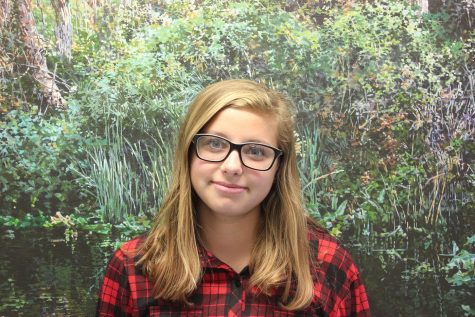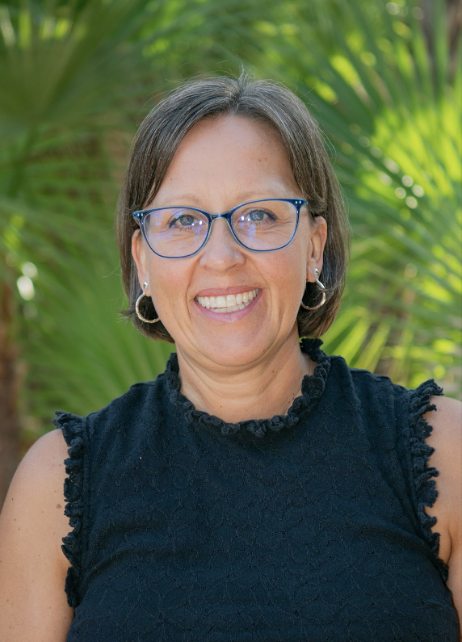Makayla Rutski: A Farmer Within Our Midst
Student by day and farmer by night, junior Makayla Rutski gives us an exclusive look at what it’s like to be lactose-intolerant, vegan and gluten-free at Berkeley.
April 16, 2017
Makayla Rutski ’18 is starting a farming initiative at Berkeley to feed the hungry at a local soup kitchen. By growing fresh fruits and vegetables and donating them to the soup kitchen, she hopes to provide healthy, locally-produced food to the needy.
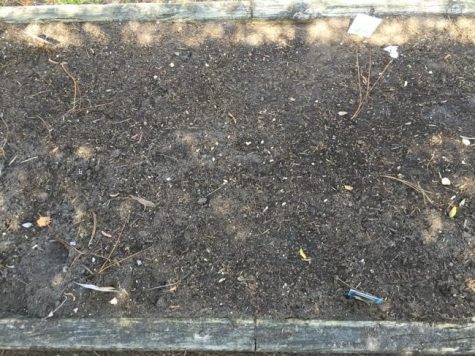
THE START OF SOMETHING NEW: Makayla’s farming initiative is set to take off as she prepares to break ground after spring break.
Q: What made you want to start farming?
A: My fascination with plants started around the age of seven. My grandpa used to own a lot of land and when we would go up to visit, I liked to pick up plants and study them. When I was around the age of 10, I started growing my own plants and found that I enjoyed growing and being responsible for something.
Q: What can you tell us about this initiative?
A: We are going to be working with a local church that has that has a food pantry. At the Center for Environmental Research and Exploratory Science on Bray Road, we are going to set up a sustainable farming garden to donate fresh food to a food bank.
Q: Why should people get involved?
A: Sustainable farming, in particular, is really cool because it allows a constant independent cycle of growth. It’s also really important because everyone needs to eat but many people don’t realize how hard it is to find low-cost healthy food in a low-income area.
Q: What made you want to start this project?
A: Because I think it is a really important problem and it is a good way to give back not only to the Tampa Bay community, but to the environment as well.
Q: Where do you hope this project will go?
A: The main goal right now is to turn this project into a Berkeley nonprofit and to get more kids involved.
Q: Does being vegan have anything to do with your love of farming?
A: Absolutely. For me, being vegan is all about sustainability and working to conserve the beautiful planet we inhabit. Growing up, I always had an incredible fascination with nature of all sorts (which my parents reluctantly encouraged as I would drag in dirt and strange plants nearly every day), but as I got older my interests really developed into an appreciation of plants and soil of all kinds. As dull as that sounds, the thought of engineering an environment and nurturing plants was amazing to me; the thought that I could create something with my own hard work and thoughtfulness was wonderful.
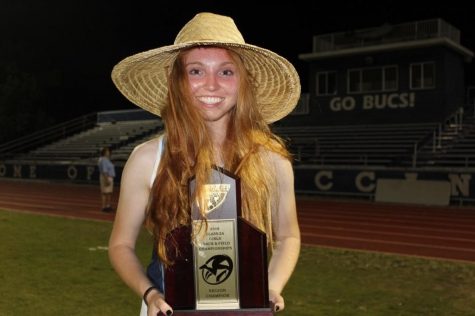
RUNNING WILD: In addition to her many other activities, Makayla also enjoys running and is apart of the Varsity track and Cross-country teams.
Q: Why did you become vegan?
A: About four years ago, I read an article discussing the environmental impact of the animal industry and my eyes were opened to an issue that I had never even considered. As anyone who knows me is well aware, I’m an environmental nut or hippie, as some folks would say. I’ve always had this immense concern for the environment — a voiceless victim to the merciless endeavors of humans — but I’m also enchanted by the power that nature holds. Now, I’m not sure the exact statistics, but they were shocking enough to me that I felt a wave of guilt smack me upside the head and that afternoon, without easing into it, I changed my entire lifestyle and I’ve never been happier.
Q: What kind of community have you found in veganism?
A: Surprisingly the vegan community in Tampa isn’t exactly large, but I’ve met a lot of lifelong friends through veganism. St. Petersburg holds a lot of vegan and vegetarian festivals and it’s a great time to share recipes and reach out to others who share similar values in the community.
Q: Is there a large vegan community at Berkeley?
A: As far as I’m aware I’m the only vegan at Berkeley, but there are plenty of vegetarians. In my opinion, the vegan community could always have more members and if anyone is interested in the lifestyle I encourage them to seek me out because I’m always available to give tips or discuss recipes and other things.
Q: What are the benefits of veganism?
A: The benefits of veganism are numerous. I feel healthier than I’ve ever been (while still eating delicious foods) and I feel less guilty about enjoying my food, knowing that it hasn’t come at the expense of the environment.
Q: What’s your favorite thing about farming? Why?
A: My favorite thing about farming is definitely harvesting. Being able to physically hold your hard work in the palm of your hand is the most rewarding experience ever and I highly recommend harvesting something once in your life (particularly carrots).
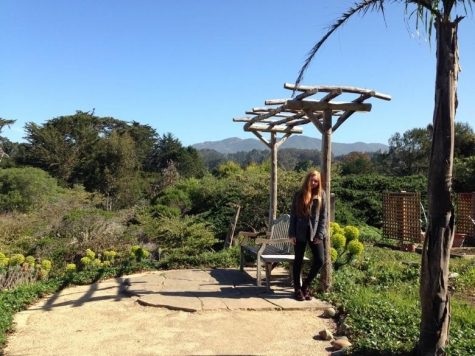
SURROUNDED BY NATURE: Makayla loves being outdoors enjoys travelling to new places to explore.
Q: Why do you think it’s important for people to learn about sustainable farming?
A: As most people would agree, agriculture is incredibly important to our society as a whole. What most people don’t know about is the horrors that are produced by large commercial farms on a daily basis to simply provide food for communities. For example, industrial agriculture promotes monoculture cropping (planting a bunch of the same crop in big fields) which effectively erodes biodiversity in both plants and animals. In addition, synthetic chemical pesticides and fertilizers are polluting soil, water and air that harm both the environment and human health. Soil is eroding much faster than it can be replenished and the land’s fertility is diminishing. And lastly, water is consumed at unsustainable rates in many agricultural areas. Sustainable agriculture is working towards a better tomorrow, beyond the widespread pollution and nutrient loss in an effort to work in conjunction with nature — not against it.
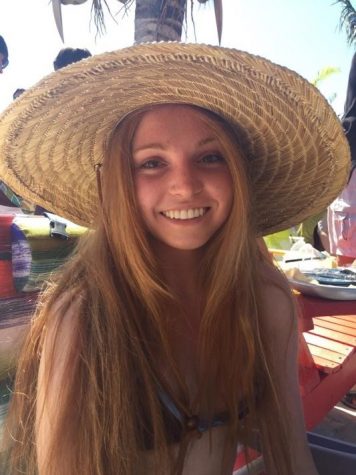
A MUST-HAVE: One of Makayla’s signature clothing items is a large straw hat that pays homage to her farming spirit.
Q: What personally drew you to sustainable farming?
A: What personally drew me to sustainable farming was my grandfather’s involvement in the cattle ranching and farming industries. Working as a farm hand from a young age and eventually owning his own land, my grandfather raised cows in all walks of life and grew everything from beets to tomatoes. Growing up seeing this farm every Sunday, I began to see the gradual transformation of the land from a beautiful landscape of flowing grass and crop beds to a nutrient-depleted wasteland. Seeing the beauty of the land morph into a nightmarish sight sparked in me an interest in conserving what nature provides us with in a manner that also benefits humans.
Q: What is something weird that you like that most people don’t?
A: I love the sound that really wet, mushy soil makes when you step in it. I also like Led Zeppelin’s “worst” album, “In Through the Out Door, “ because Jimmy Page is a gift sent to us from the heaven. Yes, maybe it was a bit out there and the production was a bit muddy, but I’m incredibly grateful for its existence regardless.


